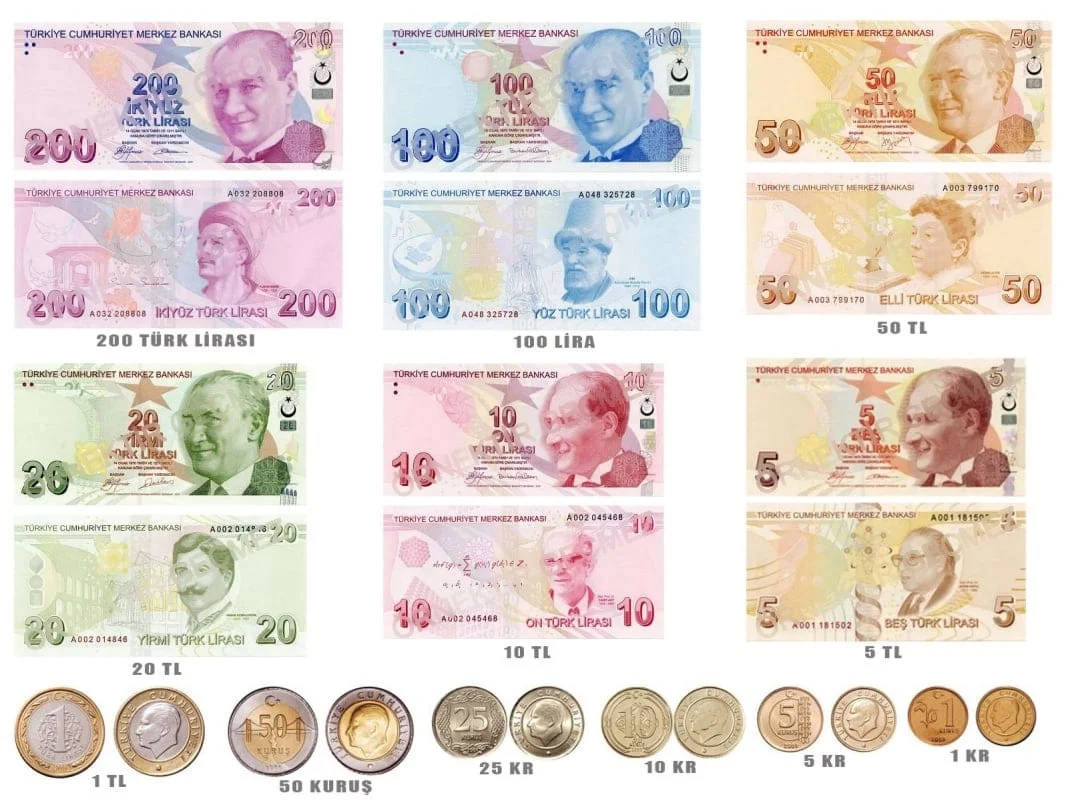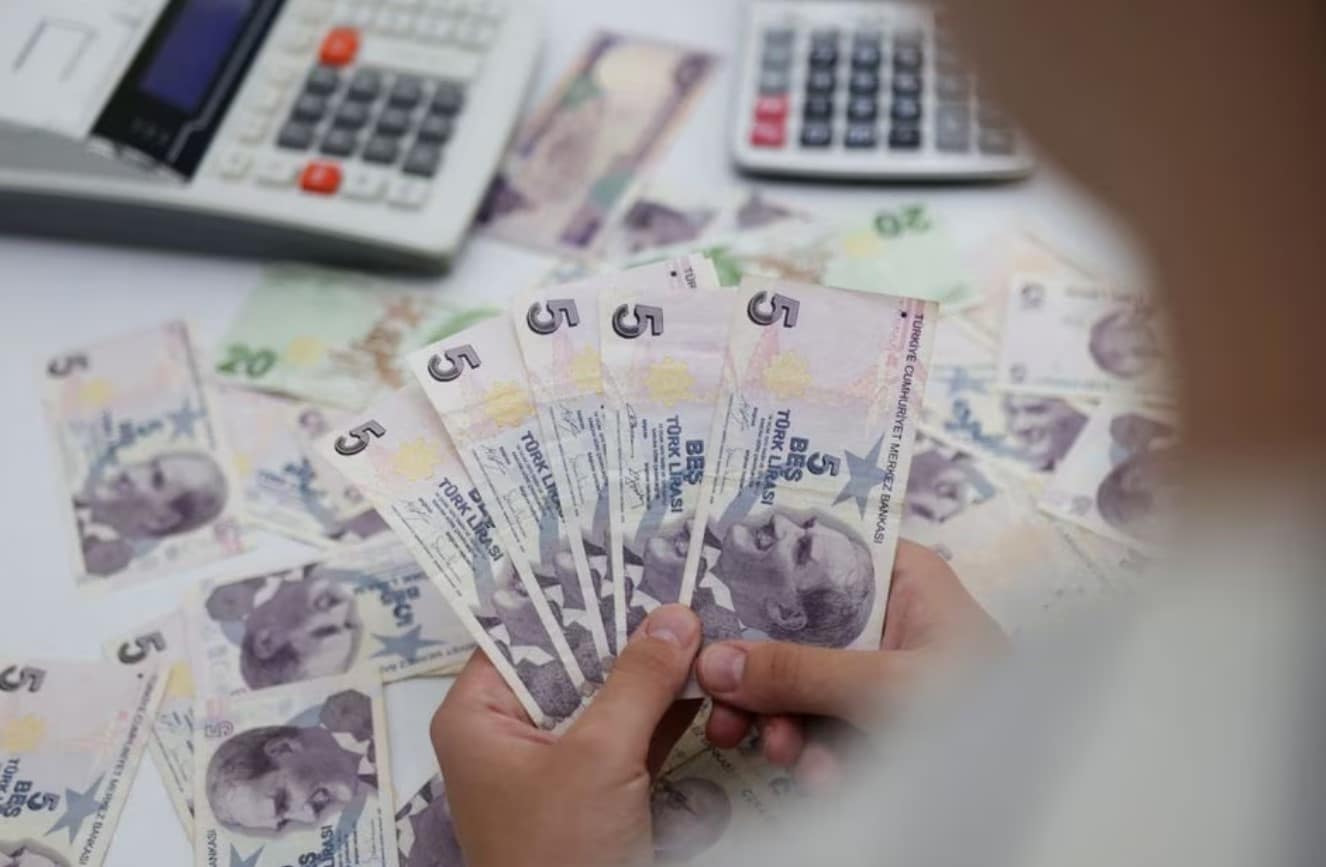The currency of Northern Cyprus and the Republic of Cyprus: a complete guide
The currency of Northern Cyprus The currency of Northern Cyprus is the Turkish lira (TRY), which is widely used throughout the Turkish-controlled areas of the island. The abbreviation of Turkish lira is TRY. On the other hand, Euro (€) is the official currency of the Republic of Cyprus. In this article, we will examine the use of different currencies in both parts of Cyprus, important points in currency conversion, the history of the division of the island, investment in North Cyprus and its economic and political consequences.
Use of other currencies in Northern Cyprus
Along with the Turkish Lira, the Euro is widely accepted in Northern Cyprus, especially in areas close to the Green Line, which is the border between Northern Cyprus and the Republic of Cyprus. The green line is the UN buffer zone that separates the two parts of the island. Also, British pounds and US dollars are accepted in some places. Of course, the exchange rate of these currencies may not be as favorable as the Euro or British Pound. Consequently, tourists and residents should note that there may be differences in the conversion rates of these currencies.

Important points in currency conversion
When converting money to Turkish lira, you should pay attention to some important points:
Exchange rate: The exchange rate of the Turkish Lira against other currencies is constantly fluctuating. Be sure to check the current exchange rate before converting your money. This will help you get the best rate for your currency conversion.
Exchange fees: Different exchanges may charge different fees. Therefore, before converting money, be sure to compare and use reputable exchanges. Reviewing fees can help you cut down on extra fees and keep the most money for yourself.
Value Added Tax (VAT): Some exchanges may charge VAT on currency conversion transactions. Take this into consideration and check whether or not VAT is applicable before making the transaction.
Using ATMs
In many towns and tourist areas of Northern Cyprus, there are ATMs from which you can withdraw cash (Turkish lira). When using an ATM, be sure to be aware of international transaction fees charged by your bank. Some banks charge high fees for international transactions, so it’s best to check with your bank before you travel.
The currency of the Republic of Cyprus
The official currency of the Republic of Cyprus since 2008 is the Euro (€). Euro coins and bills are available in different denominations (€1, €2, €5, €10, €20, €50, €100 and €200). There are many banks and exchange offices around the country that you can go to to convert your currency into Euros. Credit and debit cards are also widely accepted in the Republic of Cyprus, but some small shops and restaurants, especially in rural areas, may only accept cash.
Value Added Tax (VAT) in the Republic of Cyprus is 19%, which applies to most goods and services. This tax can affect your expenses, so keep this in mind when planning your travel budget.
History of the partition of Cyprus
Cyprus has been divided into two parts since 1974: the Republic of Cyprus in the south and Northern Cyprus in the north. This division is due to the historical tensions between the two main communities of the island, namely the Greeks and the Turks. Here we examine the historical causes and important events that led to this division:
Ottoman rule: In the 16th century, Cyprus came under the control of the Ottoman Empire. During this period, the population of the island changed significantly and the number of Turkic peoples increased increasingly. These demographic changes made two main communities with different cultures and religions to live together.
British Colonization: In 1878, Cyprus came under British rule. During this period, tensions between Greeks and Turks rose as both groups wanted independence from Britain but disagreed over the future of the island. The Greeks wanted to join Greece, while the Turks were against this idea and wanted to maintain the status quo or divide the island.
Independence: In 1960, Cyprus was recognized as an independent country under the name of the Republic of Cyprus. However, tensions between the two communities continued, eventually leading to violence in 1963. These violences caused the Greek and Turkish communities to live in separate areas and the relations between them became more tense.
The 1974 coup and the division of the island
Greece’s role: In 1974, a group of Greek officers staged a coup in Cyprus and demanded the island’s annexation to Greece. This coup caused the concern of the Turks and Turkey, because they were worried that the rights and security of the Turks would be endangered.
Turkey’s intervention: In response to this coup, Turkey invaded northern Cyprus and occupied the northern part of the island. Since then, Cyprus has been de facto divided into two parts: the Republic of Cyprus in the south, ruled by a majority of Greek descent, and Northern Cyprus in the north, ruled by a majority of Turkish descent.
The current situation in Cyprus
Peace Efforts: Over the years, several efforts have been made to resolve the Cyprus conflict and restore unity to the island. However, these efforts have so far been unsuccessful. Negotiations between the leaders of the two communities and the mediation of the United Nations and other international institutions are still ongoing.
Non-recognition: Northern Cyprus is only recognized by Türkiye. While the Republic of Cyprus is a member of the European Union and is recognized by the international community as the legal government of the entire island. This situation has caused North Cyprus to be isolated internationally and has only limited relations with other countries.
Green Line: The Green Line, the UN buffer zone, separates the two parts of Cyprus. This border line is approximately 180 kilometers long and stretches from the east to the west of the island. Buffer zones are very narrow in some places and wider in other places.
Consequences of the division of Cyprus
The division of Cyprus has had several negative consequences for the island, including:
Separation of two communities: This has led to physical and psychological separation between the two communities and has strained the relationship between them. Many families have been separated and cultural exchange between the two sectors has decreased.
Economic constraints: The economy of Cyprus has been severely affected by the partition. The northern part of Cyprus suffers from severe economic problems and many companies and international investors are reluctant to invest in this part. On the other hand, the Republic of Cyprus has a better economic situation due to being a member of the European Union and attracting foreign investments.
Political tensions: The Cyprus dispute continues to be a source of tension in the region and hinders peace and stability in the Eastern Mediterranean. These tensions have also negatively affected Türkiye’s relations with the European Union and other countries.
Currency value of Cyprus
The currency of Cyprus is divided into two parts:
Republic of Cyprus:
Euro (€) is the official currency of the Republic of Cyprus. The value of the euro depends on several factors, including:
Economic conditions: economic stability, inflation rate and interest rate in the euro zone affect the value of the euro. The better the economic conditions, the higher the value of the euro.
Political events: important political events such as elections or referendums
Endom can affect the value of the euro. For example, the financial crisis in the member countries of the Eurozone can cause the value of the Euro to decrease.
Global demand: Global demand for the euro also affects its value. The higher the demand for the euro, the higher its value.
Northern Cyprus:
The Turkish Lira (TRY) is the official currency of Northern Cyprus. The value of the Turkish Lira against other currencies, especially the Euro, has fallen significantly in recent years. Factors affecting the value of the Turkish Lira are:
Turkey’s economic stability: Turkey’s economic stability, inflation rate and interest rate in this country affect the value of Turkish Lira. The more stable the Turkish economy is, the higher the value of the Turkish lira will be.
Monetary policies: The monetary policies of the Turkish central bank affect the value of the Turkish lira. Central bank decisions on interest rates and fiscal policies can strengthen or weaken the lira.
Political events: Important political events in Türkiye can affect the value of the Turkish lira. Political instability and internal tensions can cause the lira to depreciate.
Important points when converting currency
To convert currency to Euro or Turkish lira, pay attention to the following points:
Exchange rate: The exchange rate of Euro and Turkish Lira against other currencies is constantly fluctuating. Be sure to check the current exchange rate before converting your money. This action will help you get the best rate for your currency conversion and optimize your expenses.
Exchange fees: When converting your money to Euro or Turkish lira, be sure to use a reputable exchange and pay attention to their exchange rates and fees. Different exchanges may charge different fees, so compare before converting money. This will help you avoid overpaying and keep the most money for yourself.
Value Added Tax (VAT): Some exchanges may charge value added tax (VAT) on currency conversion transactions. Take this into consideration and check whether or not VAT is applicable before making the transaction. This action will help you avoid any unexpected expenses.
Conclusion
Buying a property in North Cyprus can be an ideal opportunity considering the benefits of residence, investment and Mediterranean lifestyle. The official currency of Northern Cyprus is the Turkish Lira (TRY), while the Republic of Cyprus uses the Euro (€). Due to currency fluctuations and the importance of currency conversion at appropriate rates, it is recommended to check the daily rate and use reputable exchanges before any currency conversion. The use of credit and debit cards is also widely accepted in both sectors. For a successful purchase in North Cyprus, it is very important to pay attention to the legal conditions of the property, compare prices and consider your needs and budget. By following these tips and careful planning, you can enjoy the benefits of living on this beautiful island and make a successful investment.



















